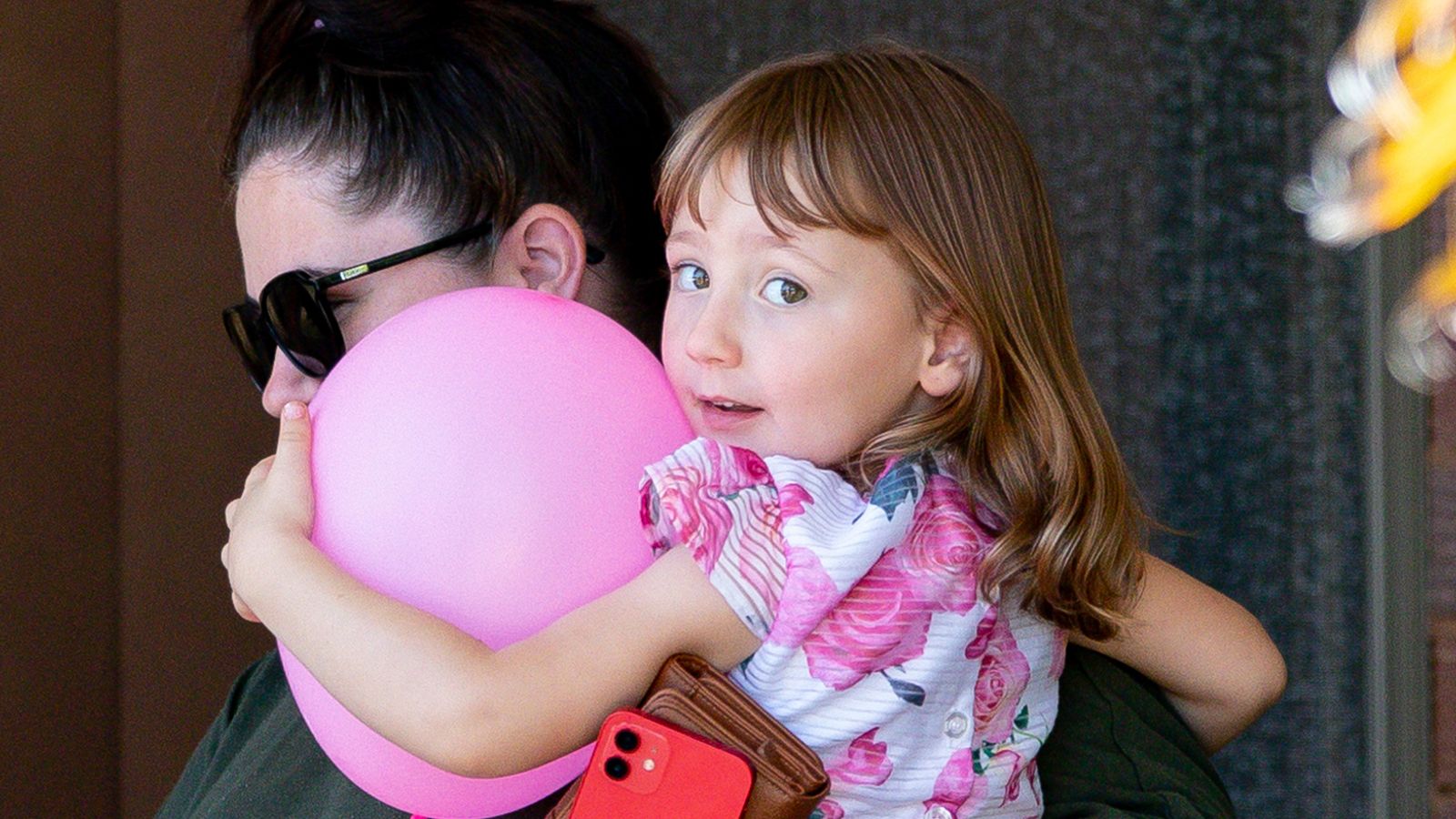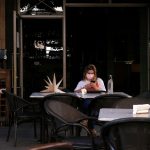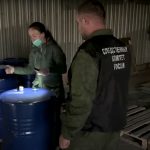Police in Western Australia have released audio of the moment Cleo Smith was discovered in a locked house and rescued by police.
Following an 18-day search, the four-year-old was found inside a property in Carnarvon, two miles from her family home, and 62 miles south of the campsite she went missing from.
In the recording, an officer can be heard saying: “We got her, we got her.”
Another officer says, “hey bubby, come here” and “I’ve got you, you’re alright”.
A third one asks: “What’s your name, sweetheart?” The child replies: “My name is Cleo.”
Please use Chrome browser for a more accessible video player
Cleo has since been seen laughing and playing in her back garden. One of the police officers who found her, Detective Senior Sergeant Cameron Blaine, said: “I can only see her on the outside, but from that point of view, I’m amazed that she seems to be so well-adjusted and happy.
“It was really heart-warming to see that she’s still bubbly and she’s laughing.
Cleo Smith: Missing four-year-old found in locked house in Australia, detectives say they were ‘shocked’ and ‘elated’
Cleo Smith: Four-year-old found alive in locked house more than two weeks after going missing
COVID-19: Tears, hugs and laughter at Sydney airport as Australia reopens border
“I’m sure that it has had an impact, but just to see her behaving quite naturally like a four-year-old girl should do and just enjoying being in the presence of her little sister and her family was good.”
Specialist child interviewers have travelled to Carnarvon and their work with Cleo will “take as long as it takes”, said Detective Superintendent Rod Wilde, who is leading the investigation.
“We’ll sit down with the family and work out the appropriate time,” he said, adding: “The main concern around that is Cleo’s welfare.”
A 36-year-old man is being interviewed, and is likely to be charged later today, police said.
Officers collected CCTV footage for almost 600 miles near the camp site, picked up rubbish along roads, and secured “hundreds of thousands of lines” of mobile phone data, said Western Australia Police Deputy Commissioner Col Blanch.
“We were looking for a needle in a data haystack,” he told the BBC.
“Through really good intelligence analysis and detective work we were able to piece together a jigsaw, piece by piece, until we felt we had enough, with that data overlay of all those pieces of information.
“That’s what then led us to a house that we believed contained someone involved in the disappearance of Cleo.”
The task now is to “understand what happened for those 18 days” and which offences may have occurred, Mr Blanch said.
“Obviously kidnapping is one, child stealing will be one,” he added.
Forensics have been at the house where Cleo was found for two days and are expected to be there longer.
Police Minister Paul Papalia said Cleo’s discovery was down to “hard police grind” rather than a “random tip or a clairvoyant or any of the sort of things that you might hear”.
Local media reported that suspicions were raised about the suspect when he was seen buying nappies, despite not having any children.
He was taken to hospital late on Wednesday and again on Thursday to be treated for injuries reportedly self-inflicted while in custody.
Asked about reports suggesting the man had banged his head against a cell wall, Deputy Commissioner Blanch said there were “no serious injuries”.
The suspect’s “medical matter does not relate to any police involvement with him”, officers said in a statement.
In Carnarvon, signs welcomed Cleo home and balloons were raised on buildings.
In the state capital of Perth, 560 miles to the south, public buildings were illuminated with blue lights to celebrate her rescue.
Finding a victim of stranger abduction alive after more than two weeks is rare, according to Xanthe Mallett, a criminologist at Australia’s Newcastle University.
“Sadly, they’re normally killed quickly, usually during the first three hours,” she added.
Local people’s keenness to help police may have been a key factor in Cleo being found.
Police “engaged so well with that community and had them on board, they had the whole community’s eyes on everyone, reporting anyone suspicious, (and) I think that was really key in this investigation – just great, old-fashioned, boots-on-the-ground police work”, Ms Mallett said.
She continued: “I always thought this was going to be somebody with local connections because it was somebody who knew that campsite, so the fact that she was so close to that campsite and so close to home wasn’t a surprise to me.”
Police offered a reward of one million Australian dollars (£544,000) but do not expect it to be claimed.






















